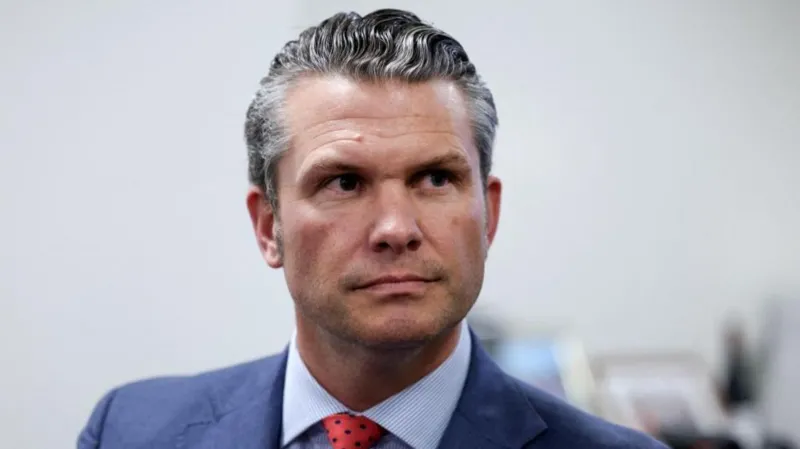
A growing scandal now dubbed “Signalgate” is raising serious questions about national security, insider influence, and transparency at the Pentagon. At the center of the controversy is Pete Hegseth, the current head of the Pentagon, known for his media background and strong ties to President Donald Trump.
Hegseth is accused of managing Signal chat groups—encrypted messaging channels—that allegedly discussed sensitive U.S. military operations, including planned air strikes in Yemen. Critics say this breach of protocol may have put American military personnel at risk.
Who Is Pete Hegseth’s Wife and Why Is She Involved?
Jennifer Hegseth, Pete’s wife and a former Fox News producer, holds no official role within the Pentagon. However, reports allege that she participated in meetings with foreign leaders and had access to discussions in private messaging groups like Signal.
This has drawn backlash from former U.S. defense officials, who argue that her presence lacks justification and compromises operational integrity.
Family and Friends Inside the Pentagon?
Adding more heat to the controversy is the fact that Phil Hegseth, Pete’s brother, and Tim Parlatore, his personal attorney, reportedly hold official Pentagon positions. The reason for their inclusion in confidential Signal discussions remains unclear.
Observers are demanding answers as to why non-military figures may have received early alerts about classified U.S. strikes.
What Was in the Signal Chat Groups?
According to The New York Times, Pete Hegseth himself created a second Signal group named “Defense | Team Huddle.” This group allegedly followed an earlier one where Jeffrey Goldberg, editor of The Atlantic, was mistakenly added and exposed its existence.
Both groups are under scrutiny for potentially discussing U.S. strikes in Yemen and other sensitive operations. While the White House and Pentagon spokespeople deny any classified information was shared, critics aren’t convinced.
Pentagon in “Total Chaos”
The controversy deepened when Hegseth fired three senior officials, accusing them of unauthorized disclosures. In response, John Ullyot, a former top Pentagon spokesperson who resigned, called the department “total chaos” in a scathing op-ed published in Politico.
“The dysfunction is now a major distraction for the president—who deserves better from his senior leadership,” Ullyot wrote.
Yemen Air Strikes: U.S. Justification and Fallout
The alleged discussions come amid ongoing U.S. air strikes in Yemen, intended as retaliation for Houthi attacks on international cargo vessels transiting the Red Sea. Since November 2023, the Iran-backed Houthis have claimed dozens of attacks on merchant vessels.
U.S. officials say their strikes are targeted and lawful. However, a recent strike on a Yemeni oil terminal reportedly killed 74 civilians and injured 171 others, sparking accusations of war crimes from the Houthi-led government.
The Houthis argue they’re supporting Palestinian resistance in the Israel-Hamas war, although many of their claimed targets appear unrelated.
The Political Fallout: National Security or Cronyism?
The existence of these private Signal groups, combined with familial involvement and unclear oversight, has put Pete Hegseth in the crosshairs of national criticism. Some accuse the Pentagon of devolving into a “boys’ club” where loyalty outweighs qualification or security protocols.
Sean Parnell, the Pentagon’s current spokesperson, dismissed the scandal as media manipulation, saying “there was no classified information in any Signal chat,” and labeling critics as part of a “Trump-hating media agenda.”
Trending Questions People Are Asking:
-
Who is Pete Hegseth’s wife and what is her role at the Pentagon?
-
Did Hegseth share classified information in Signal groups?
-
What is the Pentagon Signal chat scandal?
-
Is the U.S. legally striking targets in Yemen?
-
Why did Pete Hegseth fire Pentagon officials?
-
What is Signalgate and why is it controversial?
Final Thoughts
Whether this is a serious breach of national security or political theater, Signalgate exposes troubling questions about military oversight, family involvement in defense operations, and the use of encrypted apps for sensitive information.
As the Department of Defense Inspector General launches investigations, the world—and Washington—watches closely.